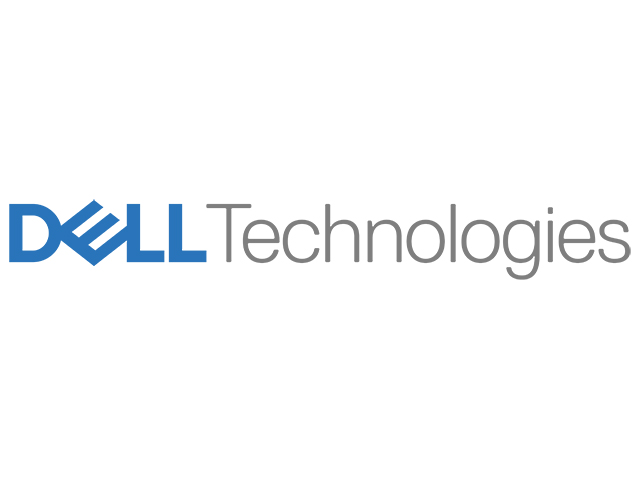On the back of its recent PC portfolio update Dell Technologies also introduced a swath of innovations across its industry-leading infrastructure portfolio. This, the company explained, is intended to ‘’help customers accelerate their data centre modernisation journeys.’’
The new advancements span server, storage and data protection categories. Together, Dell explains, these will help customers more easily meet the needs of traditional and modern workloads with improved performance, efficiency and scalability
According to the company, the reason why this matters is because organisations are rethinking their IT strategies to respond to three particular challenges: rise of AI, the need to support both traditional and modern workloads, and increased cyber threats.
Furthermore, it follows the trend of IT teams moving toward disaggregated infrastructure that abstracts compute, storage and networking into shared resource pools to deliver improved scalability, efficiency and adaptability.
On the technical side, the company unpacked the technical capabilities of its PowerEdge servers, PowerStore and PowerScale offerings.
Dell PowerEdge
This range encompasses the Dell PowerEdge R470, R570, R670 and R770 servers with Intel Xeon 6 Processors with P-cores are single and double-socket servers in 1U and 2U form factors. The servers aim to handle demanding traditional and emerging workloads like HPC, virtualisation, analytics and AI inferencing. The benefits include:
· Improves workload consolidation: Consolidate legacy platforms, freeing up power and up to 80% of space per 42U rack with the Dell PowerEdge R770. These systems save up to half of the energy costs and greenhouse gas emissions, and support up to 50% more cores per processor and 67% increased performance. This reduces data centre footprints to help achieve sustainability goals and lower overall total cost of ownership without sacrificing performance.
· Delivers extreme power with efficiency: The powerful and efficient Dell PowerEdge R570 achieves record-breaking Intel performance per watt, helping enterprises save on energy costs while maintaining high performance workloads.
· Future-ready designs: Simplify and futureproof operations with the Data Centre – Modular Hardware System (DC-MHS) architecture as part of the Open Compute Project (OCP). DC-MHS standardises server design, supporting easier integration into existing infrastructure and improving customer choice.
· Streamlined management: PowerEdge servers deliver streamlined management and robust protection through Dell OpenManage enhancements and Integrated Dell Remote Access Controller (IDRAC 10) updates, including real-time monitoring. When paired with the PERC13 PCIe Gen 5 HW Raid controller, customers can see up to a 33X reduction in write latency.
Dell PowerStore
Dell PowerStore’s intelligent software design delivers an automated, highly programmable platform with advanced data reduction and independently scalable storage services suited to the needs of modern disaggregated architectures. PowerStore’s latest software release delivers:
· AI-powered analytics: Reduce cost and eliminate manual effort with Smart Support alerts and remediation, performance headroom analytics and carbon footprint forecasting using Dell AIOps (formerly CloudIQ) software.
· Enhanced zero-trust security: Control access and boost availability with smart card authentication, automated certificate renewal and enhanced Storage Direct Protection integrations that deliver up to 4X faster backup restores5 plus support for the latest Dell PowerProtect systems.
· Advanced file system support: Enhance system performance with advanced file management capabilities, robust data protection with secure file snapshots, capacity insights for smarter storage planning and streamlined migration from Dell Unity systems.
Dell PowerScale
Dell PowerScale’s scale-out architecture makes it ideal to use as the backbone for modern AI-driven operations. Advancements improve performance-per-terabyte, enhance data centre floorspace utilisation and balance affordability with performance. It offers:
· High-density all-flash storage: 122TB SSDs maximise GPU utilisation with up to 6 PBs9 of high-speed data access in a single 2U node configuration and deliver leading performance density to meet massive AI throughput requirements.
· Hybrid and archive nodes: PowerScale A & H series nodes (H710, H7100, A310, A3100) deliver reduced latency and improved performance with a refreshed compute module for HDD-based platforms. Customers can futureproof their data centres and retain AI training data longer with a flexible, TCO-optimised portfolio mix to improve accuracy and efficiency.
Final thoughts
Dell appears to be following a refresh and renewal theme's this year, as an organisation that has always seemed to take a long view strategically. First it was its PC offerings of its enterprise offerings as well, and it seems to me as if this is laying the groundwork for a next era of computing, for both consumers and businesses. Based on comment from analysts and the company itself, something exciting seems to be afoot.
“Organisations are refocusing their IT strategies to take a disaggregated approach to infrastructure that improves resource management and simplifies management complexity,” said Simon Robinson, principal analyst, Enterprise Strategy Group, now part of Omdia. “Dell Technologies is delivering updates across its infrastructure portfolio designed to help customers easily overcome these challenges so that they’re ready to manage any workload.”
“Modern applications require a new breed of infrastructure that will help customers keep pace with everchanging data centre demands,” commented Doug Woolley, General Manager and Vice President, Dell Technologies South Africa.
“From storage to servers to data protection, only Dell Technologies provides an end-to-end disaggregated infrastructure portfolio that helps customers reduce complexity, increase IT agility and accelerate data centre modernisation,” he concluded.





